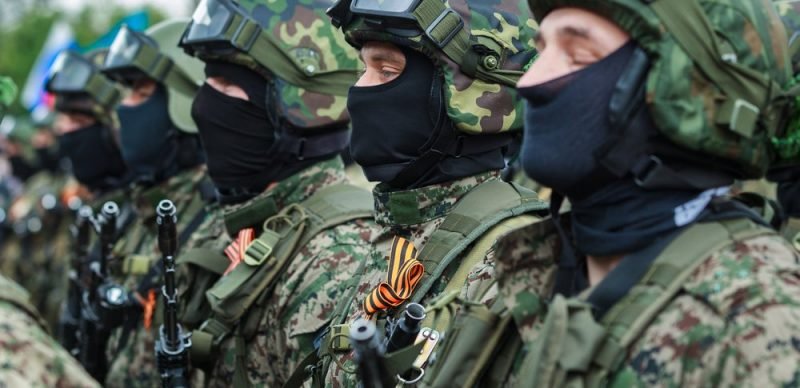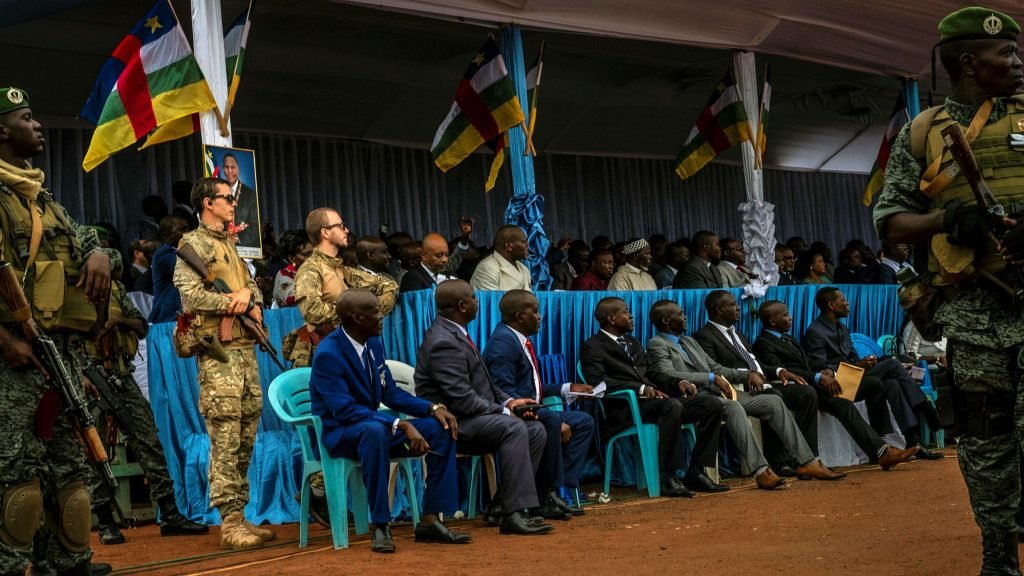The Wagner Group: Russian Boots with Plausible Deniability

Private Military Companies (PMC) can be force multipliers for state forces or agents of influence depending on how much access, responsibilities, and autonomy they are provided with. When Erik Prince, a former US Navy Seal officer started Blackwater Inc., he wanted to provide a training facility to the US Armed Forces. With time Blackwater operatives were stationed in Iraq providing security to diplomatic convoys. Gradually they became more aligned with the US military. It took a massacre in Nisour Square, Baghdad for the company to come under international public scrutiny. Four Blackwater operatives were involved in a public shooting causing 17 Iraqi civilian casualties and 20 other civilians were injured. While the four operatives were indicted in the USA on charges of murder and manslaughter, all four were pardoned by former President Donald Trump in 2020. This caused several questions regarding how powerful these PMCs become over time.
For Russia, the use of PMCs probably has a different objective. The Wagner Group was first employed by Russia in Crimea in 2014 and consists mostly of military veterans and some former prisoners. There are some very clear benefits for Russia in using the Wagner group. By not deploying soldiers in Russian uniform, Moscow maintains plausible deniability and at the same time gets battle-hardened and experienced military veterans. Here, the only cost incurred in Moscow is money and very little accountability.
As of now, mercenaries from the Wagner Group are operating in Ukraine, Syria, Libya, Sudan, Central African Republic (CAR), Venezuela, and Madagascar. The presence of mercenary groups in conflict zones is nothing to be surprised about. It is tough to tell how much control Moscow has over Wagner operatives or whether they are taking orders from the GRU. However, the matter for concern is something else. Given their presence all around the world and their founder’s proximity to Russian President Vladimir Putin, one cannot help but see an underlying convergence of interests between Yevgeny Prigozhin and Vladimir Putin.
Yevgeny Prigozhin, a man who belongs to the inner circle of Russian President Vladimir Putin is a character with an interesting history. From a street vendor selling hot dogs for a living, Prigozhin is now a businessman owning grocery chains and restaurants. Prigozhin saw the opportunity and served Putin himself when the latter arrived at a floating restaurant owned by Prigozhin himself back in 2001 thus earning him the nickname “Putin’s Chef”. Prigozhin taking advantage of his proximity to Putin, received contracts from the government and became a construction magnate. Prigozhin is also associated with the Internet Research Agency also known as the Russian Troll Factory which was accused of interfering with the 2018 US mid-term elections. As of now, Prigozhin stands indicted by the US Department of Justice and the US Department of Treasury for his role in election interference. Other than that, Prigozhin was already put under sanctions for his role in Ukraine.
Another important individual in the Wagner Group is its founder and commander Dimitri Utkin, a former special forces officer of the Russian Military Intelligence otherwise known as the GRU. Utkin retired from the Russian military as a Lieutenant Colonel and created the mercenary group. Utkin’s call sign during military service was “Wagner” as a result of his fondness for composer Richard Wagner.

While the United States of America themselves had employed PMCs in their wars in Iraq and Afghanistan, they have all the right reasons for being concerned about this mercenary group. While the group from the surface looks like any other PMC, it is visible that Putin has foreign policy interests in every place Wagner is operating out of. Hence, the Wagner Group has been called out as Putin’s invisible hand. While Prigozhin makes money out of state contracts that he receives for the deployment of Wagner mercenaries, he also gets access to resources like gold, diamond, and oil from those countries, and in return Putin gets cheap and expendable boots on the ground owned by his loyal friend, making the PMC an outreach for Russian foreign policy and geopolitical ambitions.
In the Central African Republic, the Group has gained political influence and is involved in the training of Central African Armed Forces and providing presidential protection where they receive partial payments in gold and diamond thus diversifying their revenue sources. These payment practices of accepting commodities instead of cash are viable for organizations that have an imperative to be discrete about their fundings.
In Syria, the Group’s involvement was aligned with the Russian military and regime of Bashar al – Assad, somewhere between 2015 to 2018. American forces faced a ground offensive from Wagner mercenaries in February 2018 now known as the Battle of Khasham. The battle started when pro-government militia along with the mercenaries initiated an unprovoked attack on a well-established headquarters of Syrian Democratic Forces. A firefight that lasted 4 hours was brought to an end when US airstrikes incurred mass casualties on their hostiles. This incident took place in the Conoco gas field near Al-Tabiyeh.
In Sudan, the Wagner Group fought alongside the former dictator of the country, Omar Bashir. The most recent deployment of the Wagner Group happened in Mali where they received a contract of $10 million per month.
What sets the Wagner Group apart from other PMCs is that other than providing services like VIP protection and combat training to the armed forces of any country, they actively participate in combat missions. It is known that of all the places where the Group has operated, it has inflicted human rights abuses and has left matters worse than before. Hence, the European Union on 13th December 2021 put sanctions on the organization to curtail its subversive activities. The individuals and entities put under sanction will be subject to a travel ban, asset freezes, and prohibition from making funds available in the EU.
In summation what we see in the context of the Wagner Group is an expendable mercenary force with strong linkage to Russia operating in conflict zones that are mineral-rich and politically unstable and their presence converges with the foreign policy interests and geopolitical ambitions of Moscow.


















